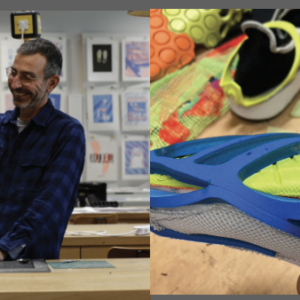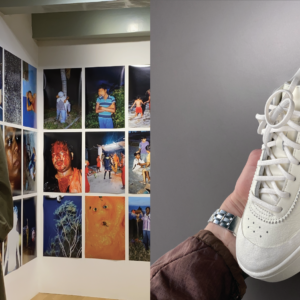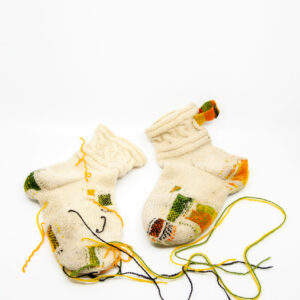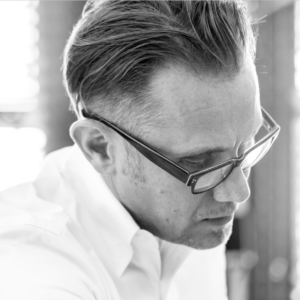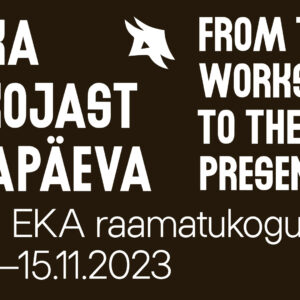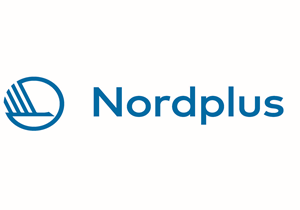Accessory Design
The specialization is an option within the curriculum of Fashion, Textile and Accessory Design.
A high quality Accessory Design education
Accessory design finds itself in the crossroads of different design practices – it has a common thread with fashion and textile design but also product design and materials science. The curriculum concentrates on the design and technologies of bags, footwear, gloves, headwear etc, using sustainable means and innovation. The curriculum also has bookbinding projects, which give necessary skills for designing and creating exclusive small products, artefacts and other art projects. New skills and technologies are acquired working with technologies which use leather, wood, metal, textile and other materials but experimenting is done also with biomass, 3d plastics, silicone, recycled plastic and so on.
An education with a long history
The Estonian Art Academy Accessory and Bookbinding department saw its beginnings in 1917, in a previous incarnation of the university – the Tallinn City Industry and Art School, where an accessory and cardboard workshop was opened. Its director Eduard Taska was educated in Paris, Munich and Saint-Petersburg. The academy’s applied art fields were moved under the design faculty which brought many changes to the curriculum.
How does learning take place?
The department prioritizes an applicable broad-based approach and its unique niche. Integration of new technologies to the studies is valued as well as developing collaborations with the industry and integrating developments in sustainability to the curriculum. All while finding a balance between the technical and handicraft skills. Lastly developing conceptual and critical thinking in the students and broadening an international network is integral.
Accessory Design is a rapidly changing field – developments in technology and the UN’s sustainable development directives demand ever-innovative solutions for the industry. Experts in the field must renew their skills and knowledge constantly.
Specialization in the field is supported by traditional technologies along with contemporary methods and lectures. Tools of design are also acquired together with students from product, fashion and textile design. The objective of the department for the graduate student is the ability to adapt to the changing work market, and for the student to value and apply a scientific-based approach in their future career.
In the general curricula the students will acquire knowledge which support an artist/designer’s creativity and obtain skills required for working independently, in a team or collaborating with a client. The specialized studies concentrate on developing a unique and personal design language of the student and supporting the growth and development for creativity and craftsmanship skills with international potential. During the studies, skills are acquired for the formulation and solving of problems and creating a field of meaning to the creations. Furthermore, the realization of ideas by digital and hands-on approaches are encouraged through creative research supported by science, cultural and design theories.
Connecting entrepreneurship
We invite and visit others! Entrepreneurship is connected through practical courses and workhops and with visits to companies. This way students will get a sense of the production cycles in Estonia and abroad. The department collaborates on projects with businesses which belong to the field of accesories, materials (material development and science) and product design. Recent projects include creating accessories for fashion brands (Ivo Nikkolo, KÄT, KIRA), but also product design (An addible accessory design for the Tuul e-bike, MagneticMRO plane accessory). We collaborate with and invite internationally recognized brands and businesses. Projects and workshops have been held by designers and representatives of ECCO, Camper and adidas.
Bachelor’s level curriculum
The BA level consists of specialized, general, elective and free-choice courses. During specialized courses base technologies are acquired which are solidified through working on projects like footwear design, novelty-collection and others. Specialized courses cover traditional handicraft skills (like upholstery technologies) but also virtual design tools (creating a collection in Clo3d), which allows the students to find their own place in the fascinating world of accessory design. From creating small products to working as a designer in a big name brand. Courses are led by industry professionals from Estonia and abroad. Through the studies enrichment trips abroad are organized, where students get familiarized with international accessory design trends and technologies (e.g the Lineapelle fair in Italy) and education (visiting guest universities), exhibitions and the cultural and art landscapes at large. The Bachelor’s studies is 3 years which culminate in the creation of an author’s collection and a portfolio.
Future prospects
The Accessory Design course enables one to work as a designer, start a career as an independent manufacturer or apply oneself to a related field like product design, trend analysis, buying, color and/or material design (sustainability and the development of new materials). The graduates will be skillful, creative, independent and ambitious designers. The field supports the development of a personal design philosophy and gives the graduate an international competitive edge. Thanks to good preparation, some of our graduates work with world recognized brands such as adidas, Bottega Veneta, Louis Vuitton, Trussardi and Jil Sander. Many graduates lead their own personal brands: Stella Soomlais stuudio, Mokoko, Piret Loog, Kadri Kruus, Kuula+Jylhä, Riina Õung, Ikigi and many others.

